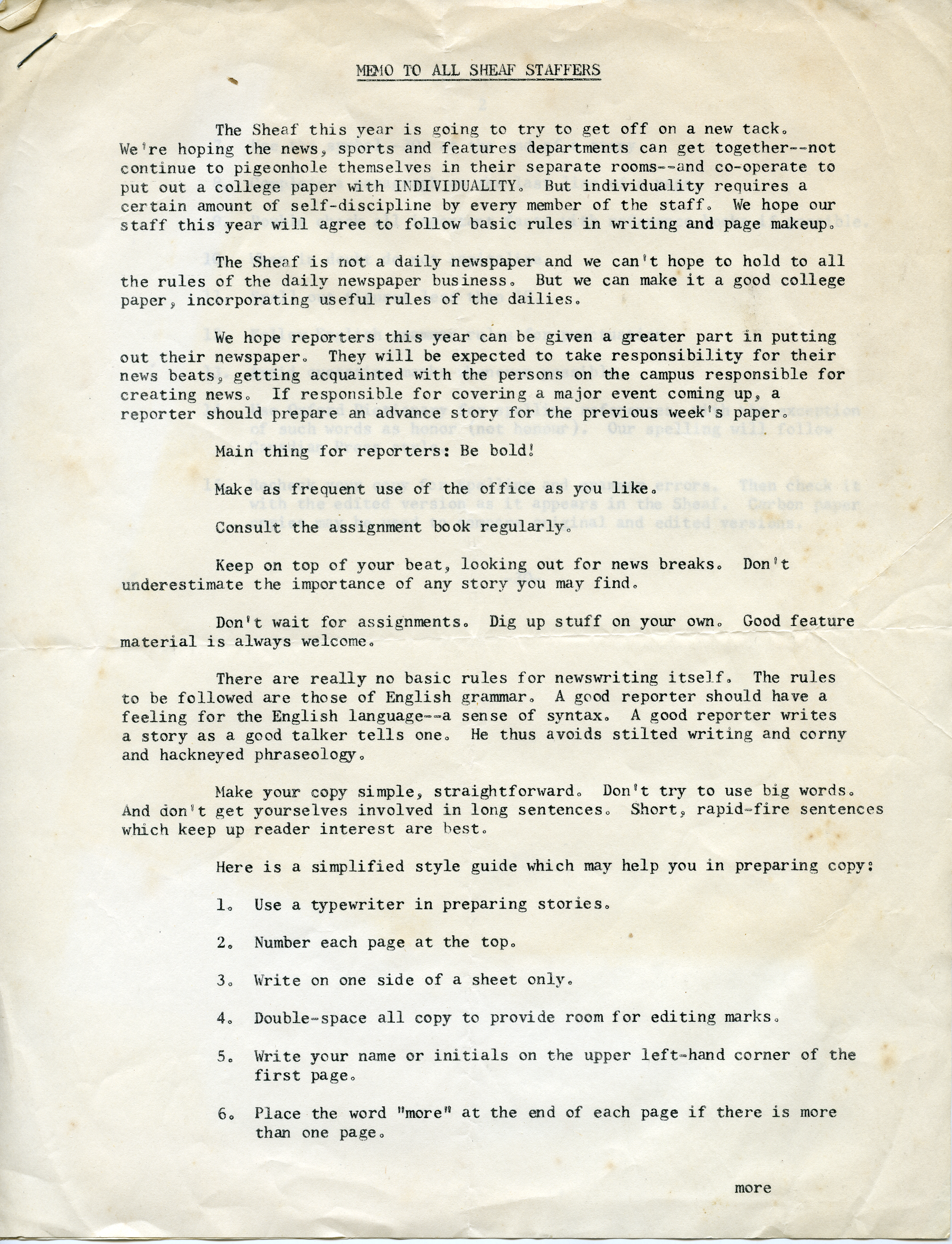The well known crime novelist and criminal lawyer William Deverell was editor-in-chief (1959-60 and part of 1958-59) of the Sheaf, the student newspaper.
The following is an excerpt of a memo he wrote to Sheaf staffers:
“The Sheaf this year is going to try to get off on a new tack. We’re hoping the news, sports and features departments can get together — not continue to pigeonhole themselves in their separate rooms — and co-operate to put out a college paper with INDIVIDUALITY. But individuality requires a certain amount of self-discipline by every member of the staff. We hope our staff this year will agree to follow basic rules in writing and page makeup.
The Sheaf is not a daily newspaper and we can't hope to hold to all the rules of the daily newspaper business. But we can make it a good college paper, incorporating useful rules of the dailies.
We hope reporters this year can be given a greater part in putting out their newspaper. They will be expected to take responsibility for their news beats, getting acquainted with the persons on the campus responsible for creating news. If responsible for covering a major event coming up, a reporter should prepare an advance story for the previous week's paper.
Main thing for reporters: Be bold!
Make as frequent use of the office as you like.
Consult the assignment book regularly.
Keep on top of your beat, looking out for news breaks, don’t underestimate the importance of any story you may find.
Don't wait for assignments. Dig up stuff on your own. Good feature material is always welcome.
There are really no basic rules for news writing itself. The rules to be followed are those of English grammar. A good reporter should have a feeling for the English language—a sense of syntax. A good reporter writes a story as a good talker tells one. He thus avoids stilted writing and corny and hackneyed phraseology.
Make your copy simple, straightforward. Don’t try to use big words, and don’t get yourselves involved in long sentences. Short, rapid-fire sentences which keep up reader interest are best.”
